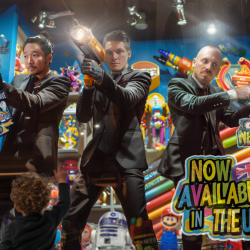People who have a positive outlook say that fear of uncertainty goes hand-in-hand with opportunity. But to see the opportunity and act on it requires a good share of love for the unknown.
Disruption through innovation as a trend started even before an unprecedented degree of digitization during the pandemic opened uncharted growth avenues. Many businesses unlocked new capabilities and adopted agile business models. But the disruption they created is now forcing other players into a survival mode. There is no more competitive landscape; anyone with sufficient resources and access to data can take your market share. Differentiation is harder to maintain; whoever has the right infrastructure can move across categories into your business space. Customers favour brands that create ecosystems of experiences. As a result, a lot of businesses face an existential threat and cannot see themselves in five years.
The choices they face are uncompromising: find ways to create new forms of value or become extinct, change at the pace the consumer is evolving or lose. The fear of uncertainty is daunting.
In theory, uncertainty should not be feared because the unknown is neither positive nor negative. However, the urge for certainty is embedded in us at the subconscious level and we assign a negative bias to the unknown for the risks associated with it.
So, is it possible to love the unknown? How can organizations adopt a “change is good” mindset?
One thing that businesses need to realise is that digitization does not necessarily mean innovation. Today, innovation lies in creating new forms of value for customers at the same pace as their needs evolve.
Etisalat, one of the oldest network operators in the Middle East and North Africa, is an excellent example of disruption through innovation. It has been fascinating to see how Etisalat transformed into a technology giant by tapping into their capabilities and core competencies to build disruptive internal startups. Creating richer customer experiences allowed them to monetize existing data. Now, their services are no longer limited to telecom. They provide entertainment content, develop apps and secure exclusive deals in entertainment, shopping, dining, travel and wellness for their customers. The most recent addition to their portfolio is an online marketplace for groceries.
Another successful innovator is Sberbank despite its traditionalist legacy of the largest Soviet bank. Holders of SberPrime cards have access to video and music streaming, a marketplace, free delivery of supermarket and pharmacy products, mobile and data services, as well as cloud storage.
The best thing an organisation can do to become comfortable with constant change is find the right innovation partner who can climb inside the business and identify opportunities to do more with the existing resources, create new revenue streams, new partnerships and new forms of value. For example, a team of experts at Lemon, a United Arab Emirates based company, that works at the intersection of technology, marketing and consultancy, help businesses find their own unique ways of modernisation through technology, data and ingenious problem-solving skills. They believe that every organisation has unrealised potential to innovate, but many don’t see it. Therefore, they need the right partner to unlock it.
It might not be possible to fall in love with the unknown but embracing change rather than fighting it might be the only path to survival. Keeping an open mind, listening to customers, finding opportunities to create new forms of value for them, and securing strategic partnerships can help gain confidence in the future and create potential for growth.
Featured image: Oren Yomtov / Unsplash





























